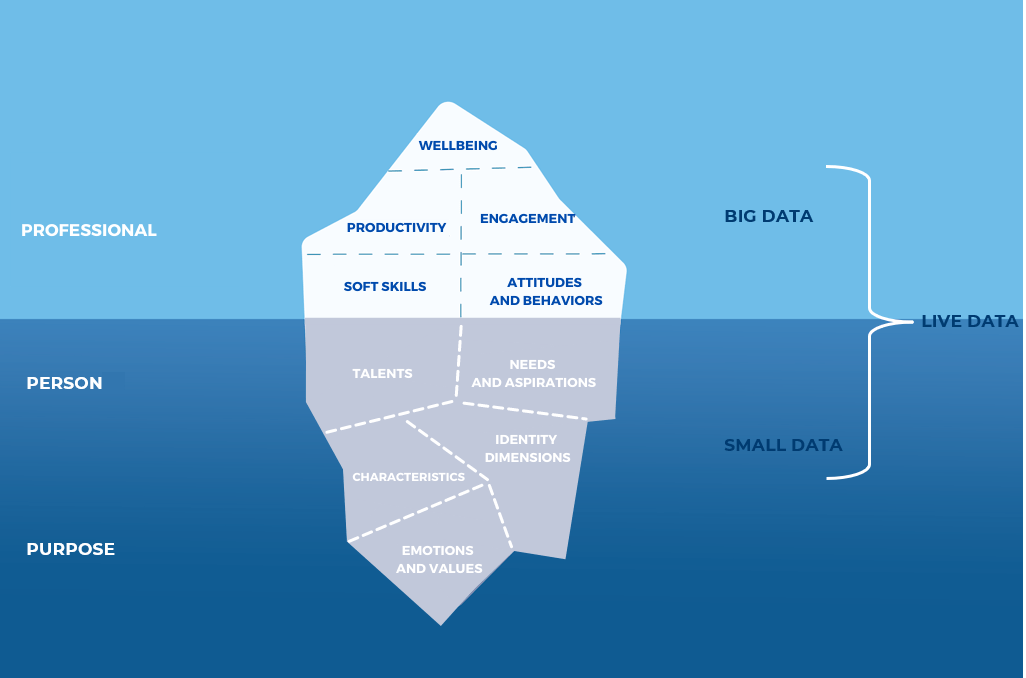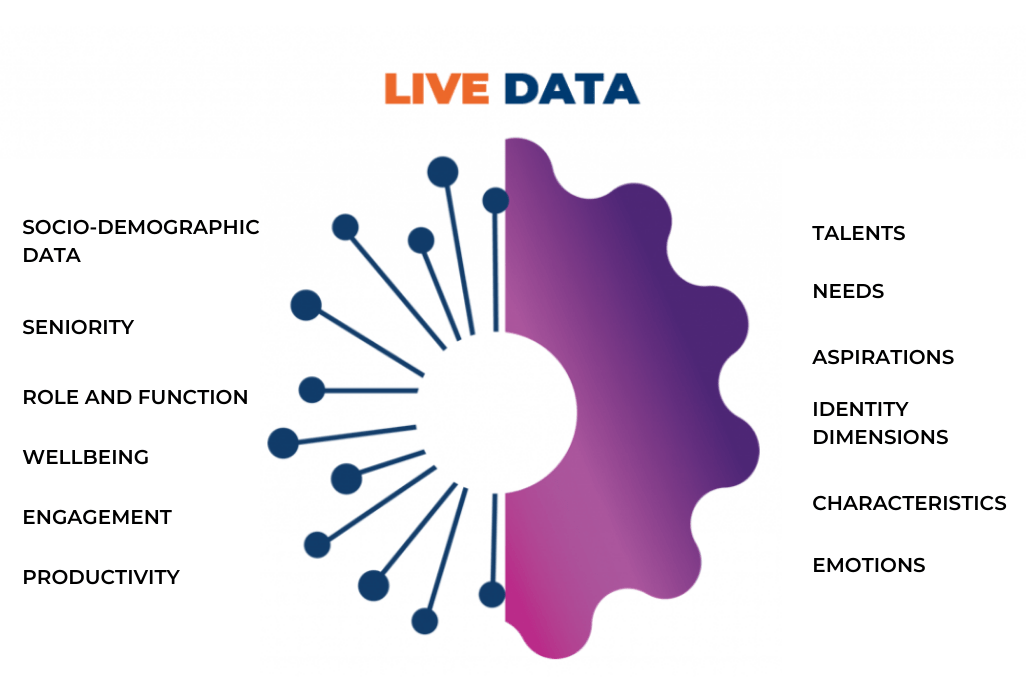1 April 2021
Companies often talk about putting “people at the centre” of what they do. It’s an expression we can all agree with. But if it remains simply a slogan, we run the risk of asking superficial questions about our people. That’s where people analytics comes in. Employees are not just professionals: they also bring to work their private lives and transitions that they’re going through.
When we consider this, it’s important for companies to make the switch from Employee experience to Life experience, within the context of caring leadership that considers its people’s diverse identity dimensions. These dimensions may include caregiving roles (being a parent, or caring for elderly or disabled relatives) and other life experiences (changing house or job) that reveal transferable skills that can also be applied at work.

If you want to get to know your employees as people, and not just professionals, you need to working with People Analytics. It’s about considering all of a person’s dimensions to develop tailored growth plans that are more effective.
“Companies usually measure elements such as wellbeing levels, engagement and productivity. They tell us ‘what’ we can see of our people at work, but they’re only the tip of the iceberg. Using this metaphor, those elements can be likened to marketing’s Big Data. The ‘why’ looks at the reasons behind the elements that are traditionally measured (and evaluated). We need to look for those in subjective and emotional characteristics, which can be likened to the Small data that Martin Lindstrom talks about“, explains Chiara Bacilieri, Head of Data at Lifeed.

“A combination of Big and Small data creates Live data, a mix that allows HR teams to tailor action plans to their people, to help each individual reach their full potential”, explains Martina Borsato, Data Strategist at Lifeed.
Instead of asking users closed questions, Lifeed’s Life Based Learning method stimulates people’s self-narration. This method reveals emotions, behaviors and skills honed through their current life phases. People can apply these skills at work too.
In this way, people actively create content through reflections on the digital platform. Companies are able to get to know their people better. This allows them to value them for all they are, both in their private and professional lives.